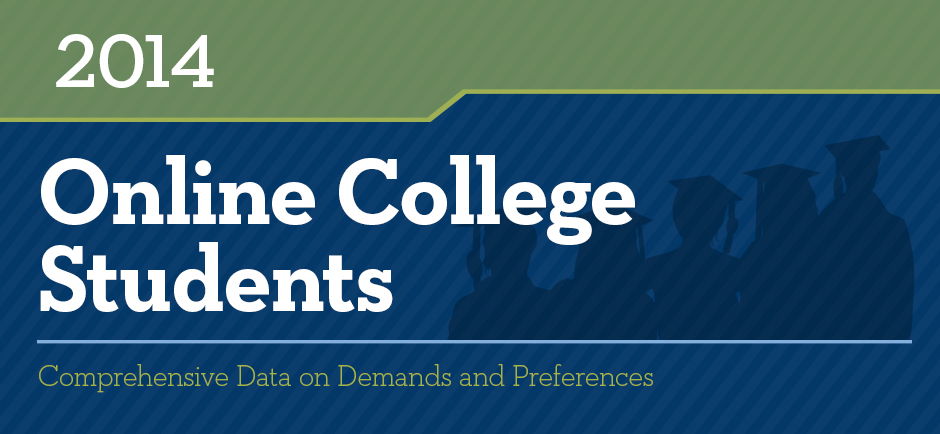
11 Key Findings About Online College Students
According to the National Center for Education Statistics, in 2012 approximately 2.6 million students were enrolled in fully-online degree programs, while 5.5 million were taking at least one online course. For institutions to fully understand how to best serve this growing population, it is critical to understand who is studying online and what they are looking for in from their degree program.
The “Online College Students 2014: Comprehensive Data on Demands and Preferences” report, a joint project of Learning House and Aslanian Market Research, shares the findings of the third annual survey of 1,500 former, current and future online students.
Some Key Findings of the Report
Online students are studying further away
Fifty-four percent of students attend an institution within 100 miles of where they live, showing a three-year trend of students increasingly willing to attend an institution farther from home. (In 2012, 80% reported attending an institution within 100 miles of where they lived. This declined to 69% in 2013.)
Cost and financial aid important, but not critical
Although students reported that cost was a primary selection factor when choosing an online degree program, approximately two-thirds of respondents said they did not choose the most inexpensive program. Only 20% said they would not attend an institution if financial aid was not offered, although approximately half said they would need financial aid.
Job placement messaging resonates
When given a choice of 18 marketing messages, the overwhelming favorite was “90% job placement.” This makes sense, given that a large majority of students pursuing an online degree are doing so for job-related reasons.
Transfer credit makes a difference
Approximately 80% of students have earned credit elsewhere, and those students want to bring that credit with them. Having a clearly defined, generous, and easy-to-navigate transfer credit policy can help institutions stand apart.
Download Online College Students 2014: Comprehensive Data on Demands and Preferences


Speak Your Mind